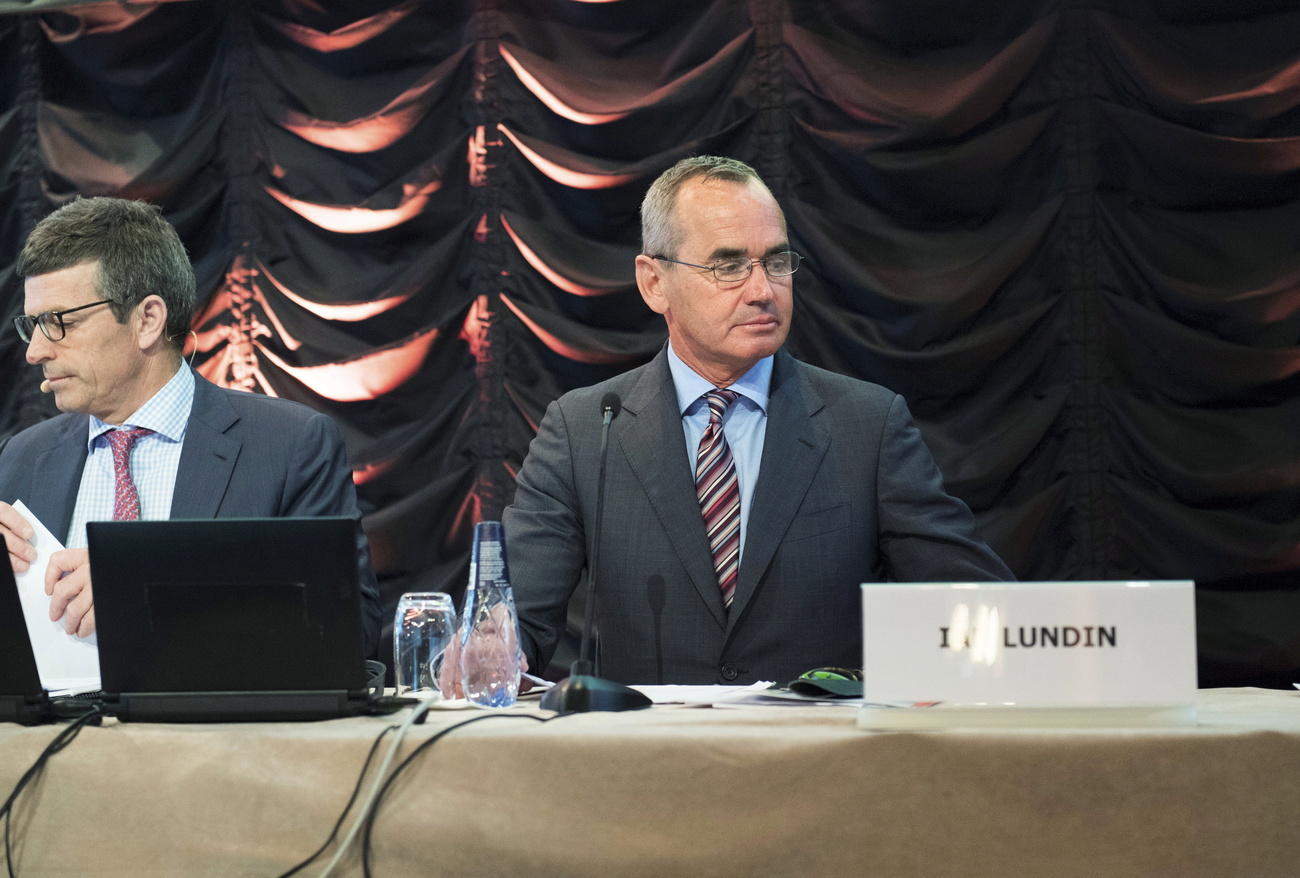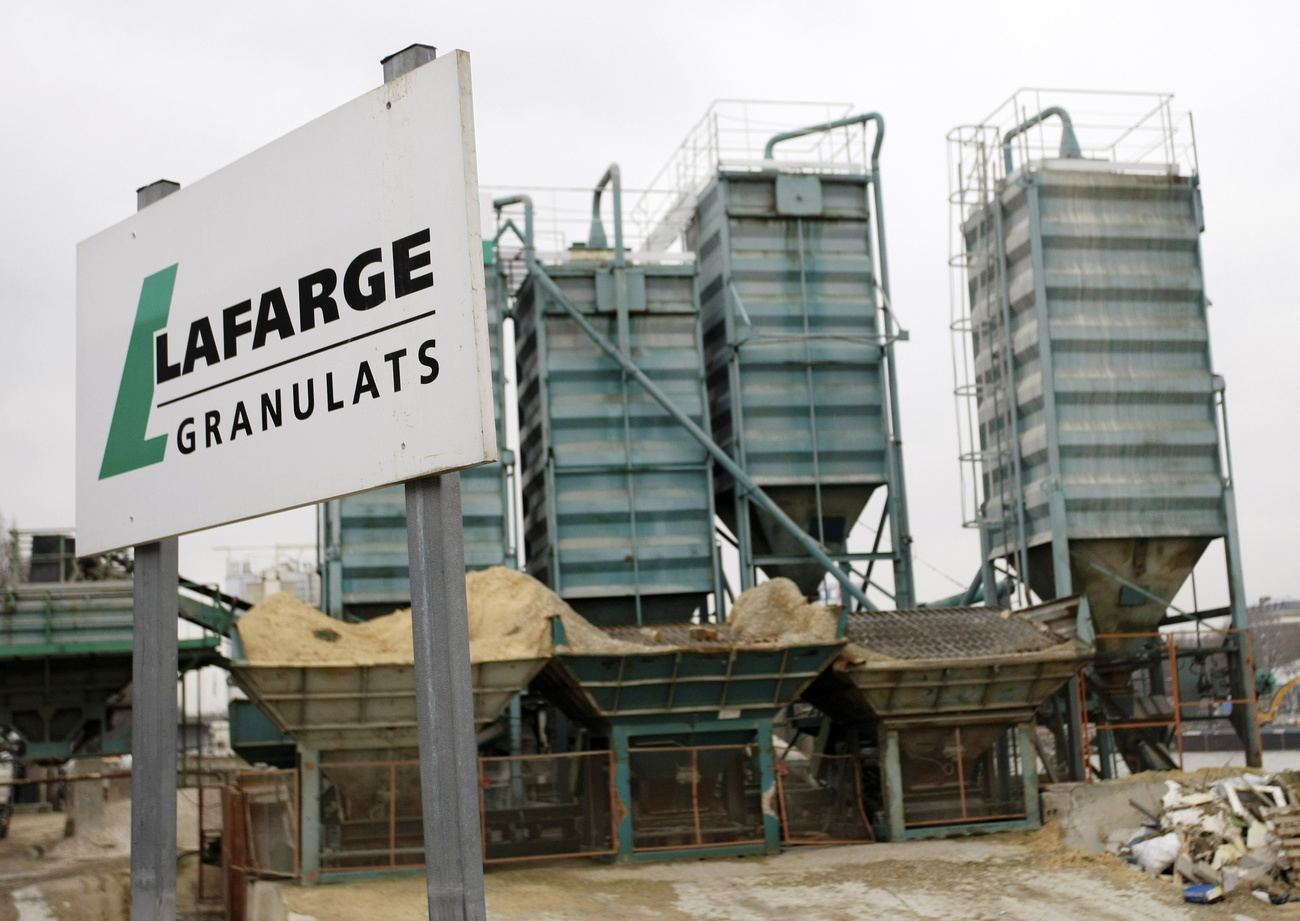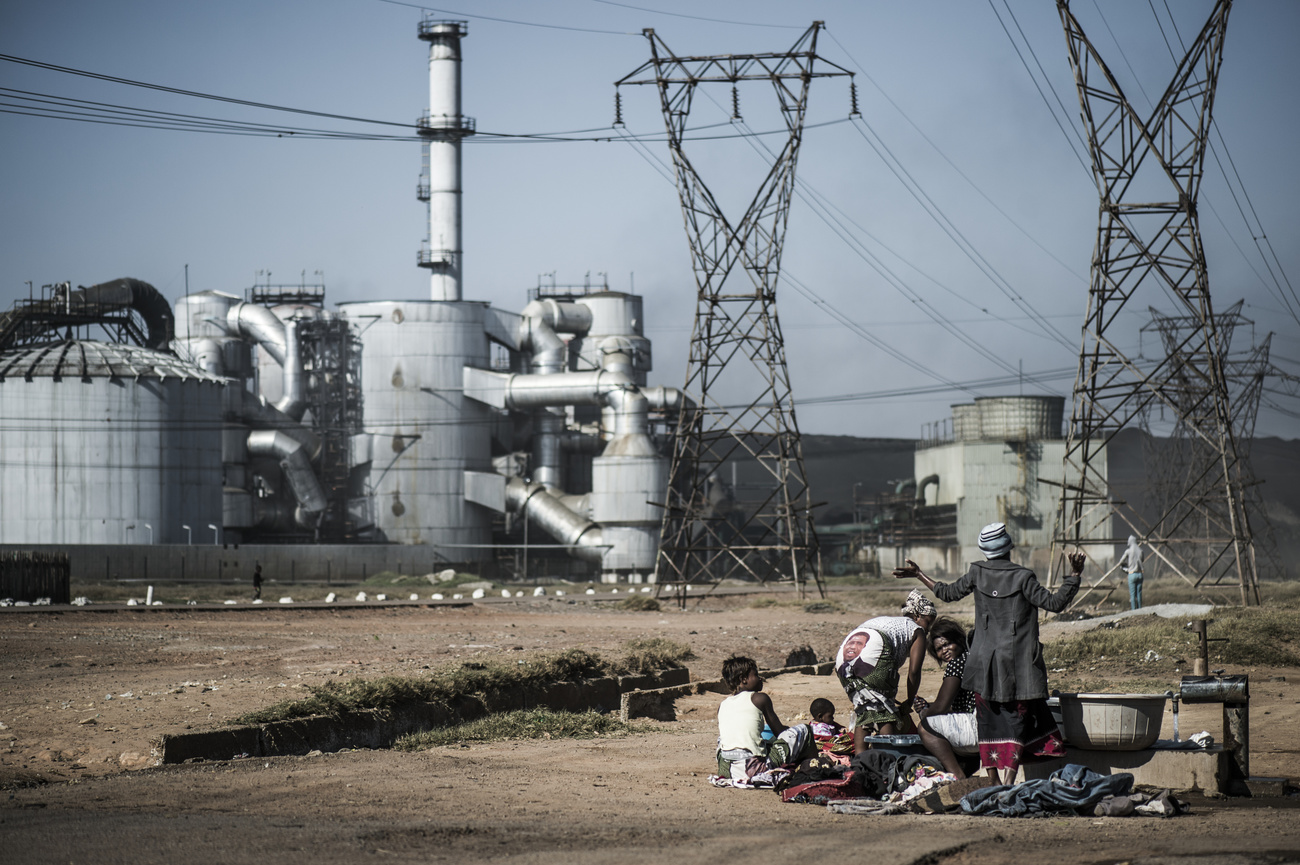Lundin case: a Swiss oil executive on trial for Sudan war crimes

In a case with international significance, two former bosses of Swedish oil firm Lundin, including Swiss former executive Alex Schneiter, went on trial this week for complicity in war crimes in Sudan.
Former Lundin Petroleum CEO Schneiter and the firm’s former Swedish chairman Ian Lundin, both resident in Switzerland, are appearing in court in Stockholm. They are suspected of fuelling Sudan’s oil wars in 1997-2003, or at least wilfully turning a blind eye, as Khartoum-backed forces and militias committed grave abuses against civilians, to “secure” an oilfield where Lundin was operating in southern Sudan. These abuses, according to the Swedish prosecutionExternal link, included bombings, shooting at civilians from helicopter gunships and burning villages and crops.
But the two executives deny all charges. Speaking to the press at the Stockholm district court as the trial started, Ian Lundin said all the accusations were false and “we look forward to defending ourselves in a court of law”.
“This is really a key landmark case,” Swiss lawyer Gerald Pachoud, an expert on corporate liability told SWI swissinfo.ch. “We have been discussing the possibility of executives being sued for war crimes because of their business operations, but it was mostly a theoretical possibility until now. This case shows that businesses and business executives need to be extremely careful when they are operating in conflict zones.”

More
Sweden can try Swiss boss Schneiter in landmark corporate crimes case
The only other such case so far is one against cement firm Lafarge, now part of the Swiss Holcim group, which is being sued in France for crimes against humanity for keeping a factory running in Syria during the civil war and allegedly making payments to jihadist groups including Islamic State.

More
Complicity in crimes against humanity: court upholds charge against Lafarge
Resonance for Switzerland
Pachoud says this trial has both judicial and political resonance well beyond the borders of Sweden. “It highlights the role that all states including Switzerland — and there is a Swiss connection here — have to play in warning or advising businesses connected to them that operate in difficult environments,” he told SWI.
In many countries, companies have contacts with the embassies of their home country, he says, and embassies could play a bigger role in warning of human rights risks. They may already do this, he says, but the channel is under-exploited. Company executives should be aware of the risks, but in fairness may not know them as well as the diplomats.
In addition, he says, Switzerland is a hub for commodities companies and multinationals like Lundin, “which underlines that Switzerland has a direct interest to make sure that companies based in its territory behave abroad. It’s part of the reputation of Switzerland.”
Lundin Petroleum (now renamed and mainly sold off) was also present in Switzerland. In 2018, Swiss police cooperated with their Swedish counterparts to launch joint raids on the company’s offices in Stockholm and Geneva.
Long and complex trial
As Ian Lundin told the press, the two former executives have had these charges hanging over them for more than decade. Despite expensive lawyers and various appeals, the trial is now going ahead. But it will be a long haul. It is scheduled to last until February 2026, with hearings three days a week. Thirty-four victims have joined as civil parties, and 57 witnesses will be heard, including high profile ones like former Swedish Prime Minister Carl Bildt, former German Interior Minister Gerhard Baum and former African affairs director at the US National Security Council John Prendergast.
“International cases are always difficult to prosecute, because you need to be able to find the witnesses, it’s often difficult to go and investigate on location.” says Pachoud. “But despite all that, they took the decision to go ahead with the trial, so I am sure the prosecution has a fairly robust case.”
In addition to being long and complex, the charge of complicity could also be hard to prove. “The challenge with complicity is that quite often you need to demonstrate shared intent and that’s rally a tough hurdle. But in this case, it seems that the evidence is quite overwhelming because of the atrocities that were linked, because of the apparent wilful blindness of Lundin’s operations in Sudan,” Pachoud adds.
Whatever the outcome, this trial is a strong symbol. “The important thing is that the trial is taking place,” says Pachoud. “The result is almost – and I stress almost – not that important. The fact that they are getting sued and the trial is taking place is really an important signal for businesses.”
Under Swedish law, the two accused could face up to life imprisonment if convicted. It seems we will have to wait at least two years to find out.

In compliance with the JTI standards
More: SWI swissinfo.ch certified by the Journalism Trust Initiative











You can find an overview of ongoing debates with our journalists here . Please join us!
If you want to start a conversation about a topic raised in this article or want to report factual errors, email us at english@swissinfo.ch.